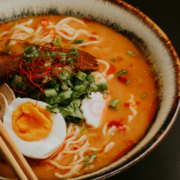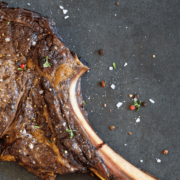Merino wool is renowned worldwide for its softness, warmth, and versatility.
The high-quality Merino wool produced in New Zealand is particularly sought after due to the country’s commitment to sustainable and ethical practices in wool production.
In this blog, we will explore the sustainable and ethical aspects of Merino NZ, shedding light on the eco-friendly and humane methods employed in the process.
Let’s delve into the practices that make Merino NZ a preferred choice for environmentally conscious consumers.
Contents
Natural Grazing Environments:
One of the key factors contributing to the sustainability of Merino NZ is the natural grazing environments in which the Merino sheep are raised. New Zealand’s vast landscapes offer ample space for the sheep to roam freely, allowing them to graze on a diverse range of nutritious grasses and vegetation.
This natural diet helps ensure the sheep grow healthy and strong and produce high-quality wool fibersThe open and spacious grazing areas also reduce the need for supplemental feeding, which in turn minimizes the carbon footprint associated with agricultural activities. By allowing the sheep to graze naturally, Merino NZ promotes a harmonious balance between wool production and environmental conservation.
Ethical Treatment of Sheep:
Ethical treatment of animals is a core principle in Merino NZ wool production. New Zealand has strict animal welfare regulations and codes of practice that govern the treatment of farm animals, including sheep. Farmers are committed to ensuring the well-being and health of their Merino sheep throughout their lives.
The sheep are provided with proper nutrition, access to clean water, and shelter to protect them from adverse weather conditions. Shearing, which is necessary to harvest the wool, is done with utmost care to ensure the sheep’s comfort and safety. Professional shearers are trained to handle the sheep gently, minimizing stress and discomfort during the process.
Eco-Friendly Farming Methods:

Sustainability is deeply ingrained in New Zealand’s agricultural practices, and Merino wool production is no exception. Farmers embrace eco-friendly farming methods to reduce their impact on the environment. Some of these methods include:
Organic Farming:
Many Merino farmers adopt organic farming practices, avoiding the use of synthetic fertilizers, pesticides, and genetically modified organisms. Organic farming supports soil health and biodiversity, promoting a more sustainable ecosystem.
Reduced Chemical Usage:
Farmers focus on minimizing chemical usage in the form of drenches and other treatments. Instead, they implement natural alternatives to manage pests and parasites effectively.
Water Conservation:
Water is a precious resource, and Merino farmers implement water conservation measures to reduce consumption and ensure responsible use of this valuable asset.
Traceability and Supply Chain Transparency:
Transparency in the supply chain is crucial for ethically produced Merino NZ wool. New Zealand’s Merino wool industry takes pride in its traceability systems, allowing consumers to understand the journey of the wool from farm to finished product. Through traceability, consumers can have confidence in the authenticity and ethical standards of the Merino NZ wool they purchase. This information empowers consumers to make informed choices and support sustainable practices.
Natural ad Biodegradable Properties:
Beyond the sustainable production practices, Merino wool is inherently eco-friendly due to its natural and biodegradable properties. Unlike synthetic materials, Merino wool is a renewable resource that can be harvested annually from sheep without harm.
Additionally, when disposed of, Merino wool naturally decomposes, reducing its environmental impact. The biodegradability of Merino wool aligns with the principles of a circular economy, where materials are designed to be reused, recycled, or returned to the earth at the end of their useful life.
Conclusion:
Merino NZ is a shining example of sustainable and ethical wool production. From the sheep’s natural grazing environments to the ethical treatment and care they receive, every step of the process reflects New Zealand’s commitment to responsible farming and environmental stewardship.
By choosing Merino NZ products, consumers not only enjoy the luxurious qualities of this exceptional wool but also support a sustainable and ethical industry. The eco-friendly and traceable nature of Merino NZ wool makes it a preferred choice for environmentally conscious individuals who value both quality and responsible practices.
As the demand for sustainable products continues to grow, Merino NZ stands as a model for the integration of environmental responsibility, animal welfare, and product excellence in the world of wool production.
Read Also:












